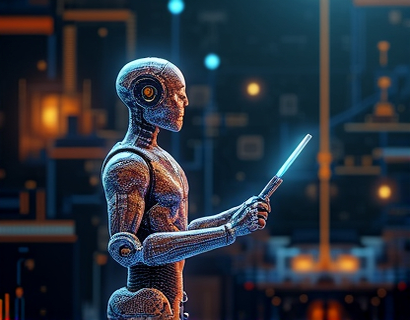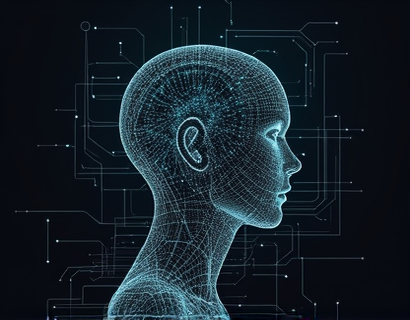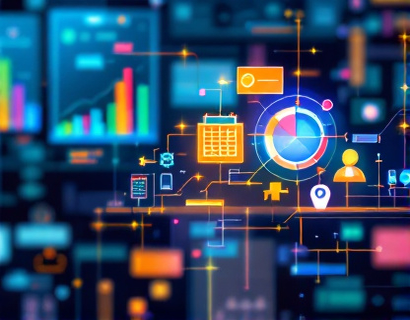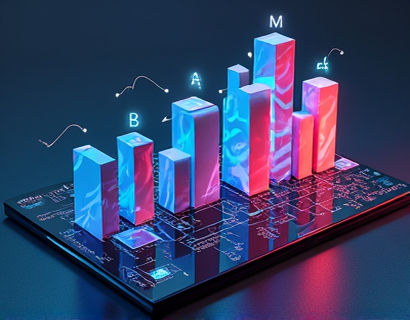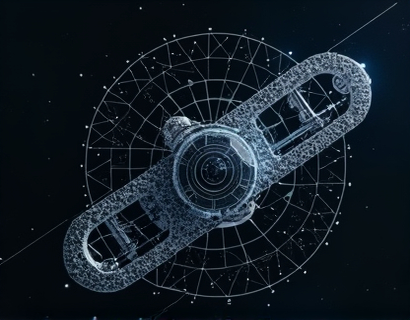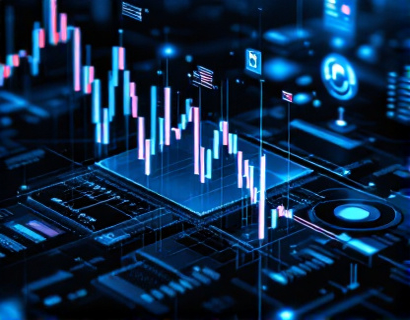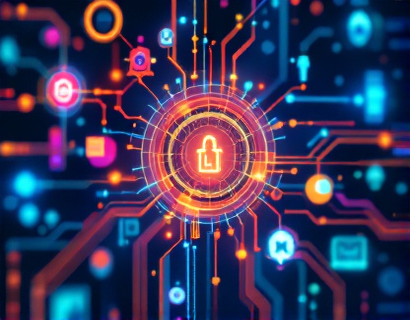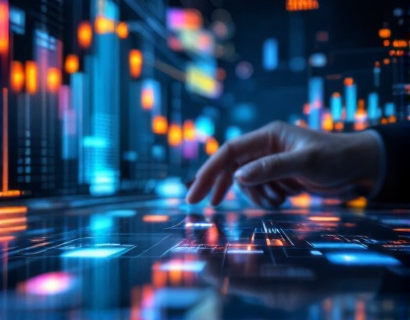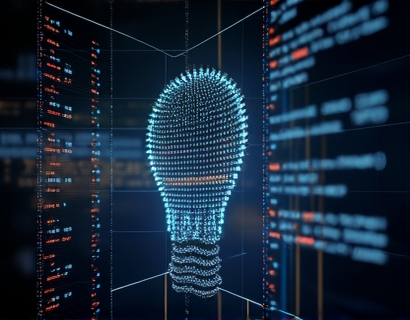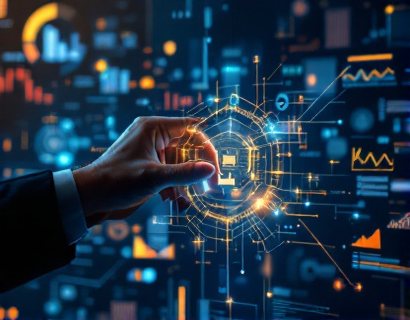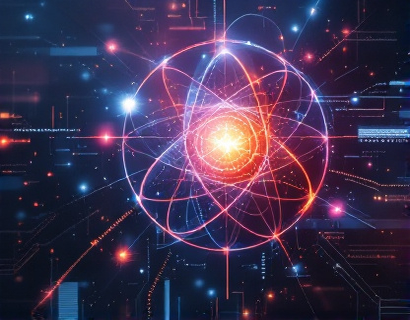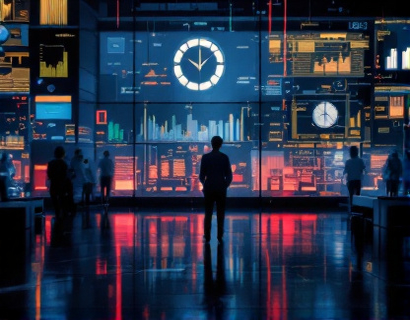Pioneering Seamless Digital Transformation with Advanced Blockchain Solutions
The integration of artificial intelligence (AI) and cryptocurrency, particularly through blockchain technology, is revolutionizing the digital landscape. This synergy is not just a technological advancement but a transformative force that is reshaping industries and redefining how we interact with digital systems. By merging the power of AI with the security and transparency of blockchain, businesses and individuals can unlock unprecedented levels of efficiency, security, and innovation.
The blockchain, a decentralized ledger technology, has been the backbone of cryptocurrencies like Bitcoin and Ethereum. However, its potential extends far beyond digital currencies. Blockchain's inherent characteristics, such as immutability, transparency, and decentralization, make it an ideal platform for enhancing various sectors, from finance and supply chain to healthcare and governance. When combined with AI, the possibilities become even more profound.
Enhancing Efficiency through AI and Blockchain
One of the most significant benefits of integrating AI with blockchain is the enhancement of operational efficiency. AI algorithms can process and analyze vast amounts of data in real-time, identifying patterns and insights that would be impossible for humans to discern. When this data is stored on a blockchain, it ensures that the information is secure, tamper-proof, and accessible to all authorized parties. This combination allows for streamlined processes, reduced manual intervention, and faster decision-making.
For instance, in supply chain management, AI can predict demand, optimize inventory levels, and detect fraudulent activities. Blockchain ensures that all transactions and movements of goods are recorded accurately and transparently. This not only reduces the risk of errors and fraud but also speeds up the entire process. Companies like Maersk and IBM have already started using blockchain-based platforms to improve supply chain efficiency, and the integration of AI further amplifies these benefits.
Boosting Security with Blockchain and AI
Security is a paramount concern in the digital age, and the combination of AI and blockchain offers robust solutions. AI can detect anomalies and potential threats in real-time, while blockchain provides a secure and immutable record of all transactions. This dual approach significantly reduces the risk of cyberattacks and data breaches.
Smart contracts, self-executing contracts with the terms directly written into code, are a prime example of this synergy. AI can monitor the conditions of smart contracts and ensure that all parties adhere to the agreed terms. Any deviation can be immediately detected and addressed, enhancing the overall security of the transaction. Additionally, AI-driven security systems can continuously learn and adapt to new threats, providing a dynamic and proactive defense mechanism.
Fostering Innovation through Blockchain and AI
The convergence of AI and blockchain is not only about improving existing processes but also about fostering innovation. This technological marriage opens up new possibilities for product and service development, enabling businesses to create novel solutions that were previously unimaginable. For example, in the healthcare sector, AI can analyze medical data stored on a blockchain to identify trends and predict patient outcomes, leading to more personalized and effective treatments.
In the financial industry, AI-powered trading algorithms combined with blockchain's transparent ledger can create more efficient and fair trading environments. This can lead to the development of decentralized finance (DeFi) platforms that offer traditional financial services without the need for intermediaries, reducing costs and increasing accessibility.
Case Studies: Real-World Applications
Several companies and projects are already leveraging the power of AI and blockchain to drive innovation. One notable example is Filecoin, a decentralized storage network that uses blockchain to incentivize data storage providers. AI algorithms optimize the storage allocation and data retrieval processes, ensuring high efficiency and reliability. This not only reduces storage costs but also enhances data availability and security.
Another example is Provenance, a platform that uses blockchain to provide end-to-end traceability for products. AI is used to analyze and verify the data recorded on the blockchain, ensuring that the information is accurate and trustworthy. This is particularly valuable in industries like food and pharmaceuticals, where traceability is crucial for safety and compliance.
Challenges and Considerations
While the potential of AI and blockchain is immense, there are several challenges and considerations that need to be addressed. One of the primary challenges is the technical complexity involved in integrating these technologies. Developers and businesses must have a solid understanding of both AI and blockchain to implement solutions effectively.
Another challenge is the regulatory landscape. As these technologies are still relatively new, regulations are evolving and can vary significantly across different regions. Companies must navigate these regulations carefully to ensure compliance and avoid legal issues. Additionally, there are concerns about scalability and energy consumption, particularly with blockchain networks that use proof-of-work consensus mechanisms.
Overcoming Challenges
To overcome these challenges, collaboration between technologists, policymakers, and industry leaders is essential. Developing standardized frameworks and best practices can help streamline the integration process and ensure interoperability. Investing in research and development can lead to more efficient and energy-friendly blockchain solutions. Moreover, education and training programs can equip professionals with the necessary skills to work with these advanced technologies.
Governments and regulatory bodies play a crucial role in creating a conducive environment for innovation. Clear and consistent regulations can provide the necessary guidance and protection for businesses and consumers alike. By fostering a supportive ecosystem, the full potential of AI and blockchain can be realized.
The Future of AI and Blockchain
The future of AI and blockchain is bright, with continuous advancements promising even greater synergies and applications. As AI algorithms become more sophisticated, their ability to process and derive insights from blockchain data will improve, leading to more intelligent and autonomous systems. The development of quantum computing, while still in its infancy, could further enhance the capabilities of both AI and blockchain, opening up new frontiers in computing and data management.
In the realm of decentralized applications (dApps), the combination of AI and blockchain is set to revolutionize how we interact with digital services. AI-driven dApps can offer personalized experiences, intelligent recommendations, and seamless user interactions, all while maintaining the security and transparency of blockchain. This could transform industries ranging from entertainment and gaming to education and beyond.
Conclusion
The integration of AI and blockchain is more than just a technological trend; it is a transformative force that is reshaping the digital world. By leveraging the strengths of both technologies, businesses and individuals can achieve unprecedented levels of efficiency, security, and innovation. As the landscape continues to evolve, embracing this synergy will be crucial for staying competitive and relevant in the rapidly changing digital market.



